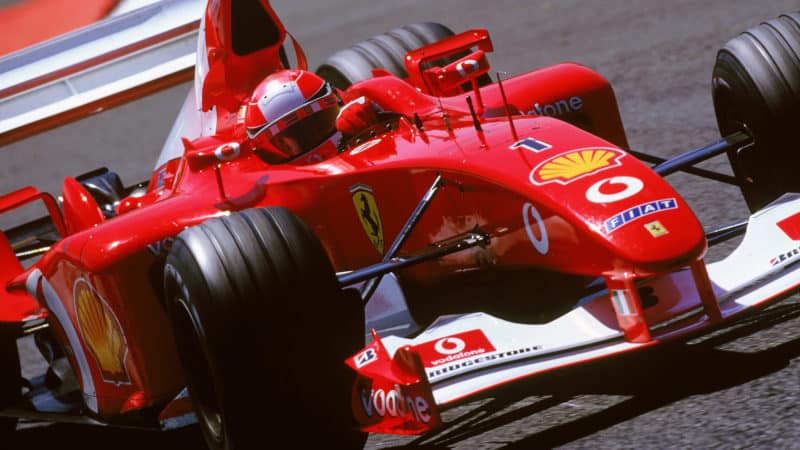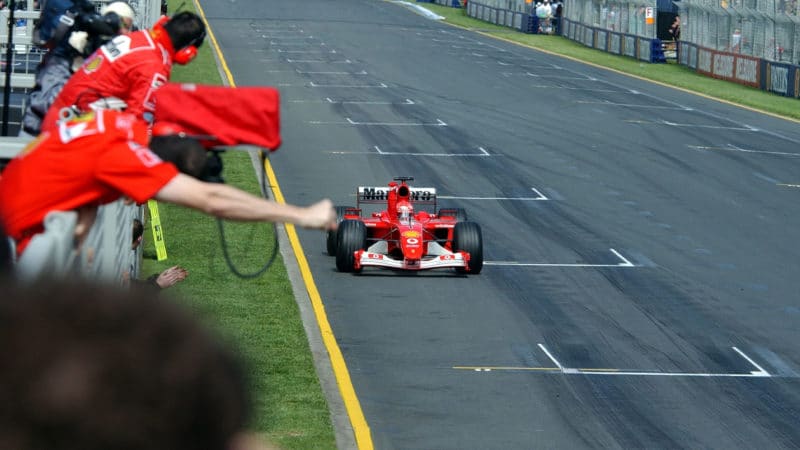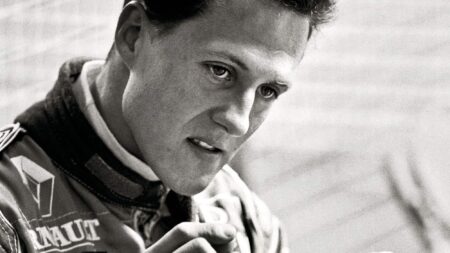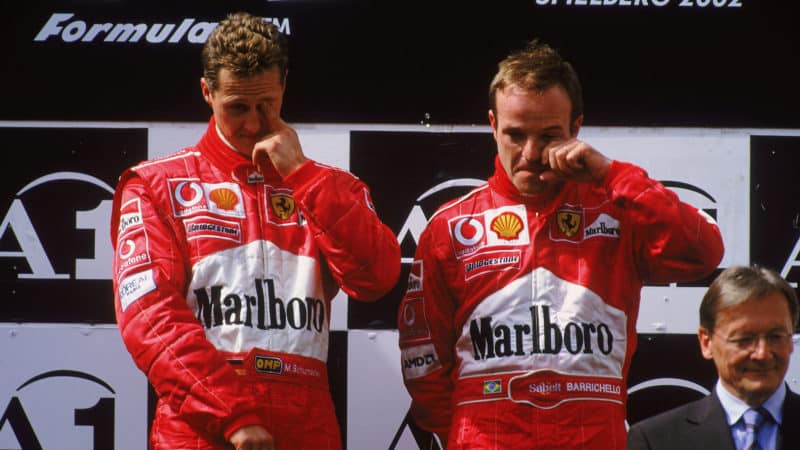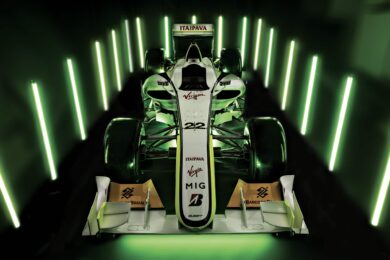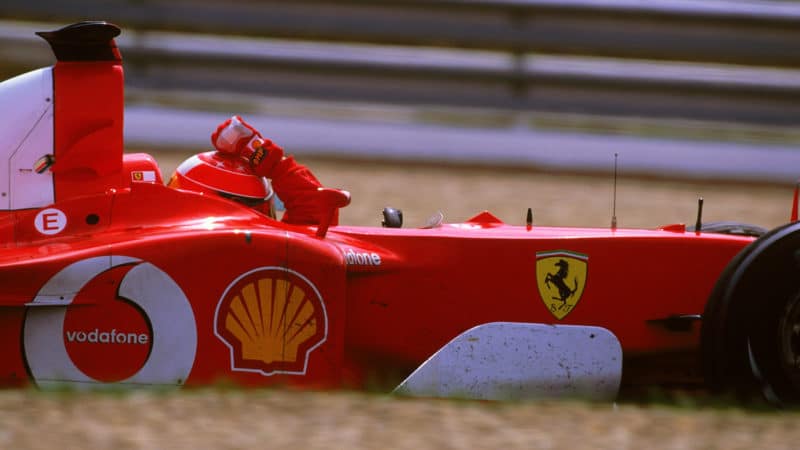Ominously though, Schumacher did exactly that and won the first race of 2002 anyway, before ceding places one and two to brother Ralf and Williams-BMW team-mate Juan Pablo Montoya in Malaysia. But despite these early strong results, those at Maranello weren’t content in simply just carrying on with their old car’s philosophy.
The design team’s method for continuing the lineage of success was to junk what they had previously known before in order to take their success up to another level.
And they had the perfect driver – one who loved getting stuck into testing – with which to do it. Schumacher had chalked up 54 race wins in the ten years prior to 2002, but in terms of win-rate, he was only just getting started.
The key to Ferrari’s new racing iteration was weight – or lack of it. Byrne and his boys made the greatest gains in this area through the gearbox and were inspired by the design of their Italian compatriots, Minardi.
Ferrari had barely changed its basic gearbox assembly and construction since the early ‘90s and, despite winning recent titles in ‘99’, 00 and ’01, took Faenza inspiration to construct the F2002’s gearbox casing from lightweight titanium alloy, while also making it significantly smaller and stiffer than the previous version.
This, combined with the lighter suspension and uprights, meant the centre of the car’s gravity was much lower, giving the team more room to play with in terms of moving ballast around.
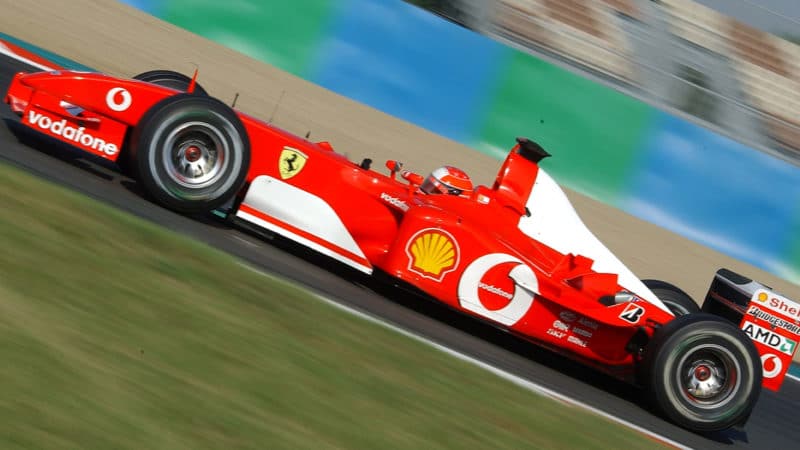
The new F2002 lower sidepods allowed for a more compact rear and therefore greater airflow directed towards the rear-wing and diffuser
GILLES LEVENT / DPPI
The F2002’s aggressive coke-bottle shape also allowed increased air-flow to be directed towards the diffuser and rear wing, helping the car to have a considerable advantage in terms of aerodynamic efficiency.
The new Tipo 51 3-litre V10 wasn’t bad either, producing 835bhp at a canter, which could be turned up to 900bhp in qualifying. Whilst perhaps not a match for Williams’ BMW power-unit in terms of sheer power, the drivability of the horses afforded, combined with the chassis, were still more than enough to see the Cavallino through.
“What makes it so special is that in every area we’ve been able to improve the car,” Schumacher commented on the F2002 in an interview with James Allen. “Although last year’s car was a very good car, we’ve gone a step further.”
What further helped was Ferrari’s increasing closeness to tyre supplier Bridgestone. With other top teams running Michelins, the Japanese companies focus was firmly on Ferrari, which suited them fine.
“We have Bridgestone on our side, which develop very well together with us, we have a lot of time [developing the tyre],” the German commented on the special relationship. “We have a special test car [which] does all the development with them. And all these [things] just work hand in hand is probably one reason of the success.”
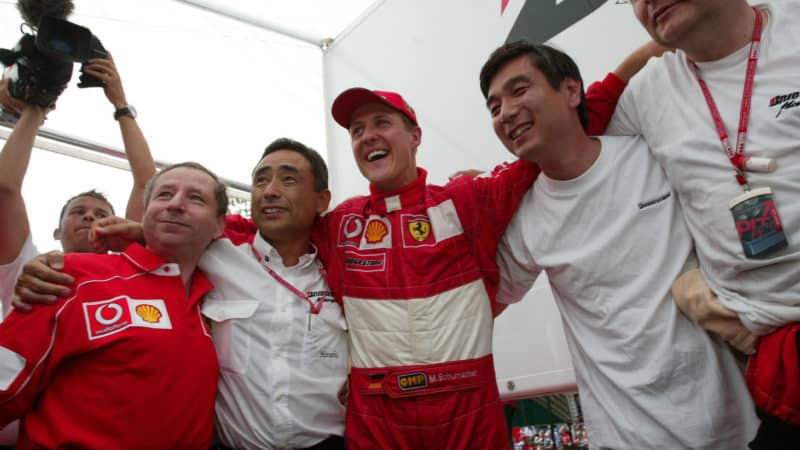
The Scuderia’s prime position as Bridgestone’s only leading team meant tyres were developed with Ferrari in mind
DPPI
It was a flying start for the new Ferrari. Schumacher won right out of the box in the F2002’s first race at Interlagos, taking the win by half a second from the sibling Schumacher. Asked if he’d been under pressure, he said “It wasn’t that bad.”
Schumacher then claimed victory by 17sec from team-mate Rubens Barrichello at Imola. Then he won in Spain too.
